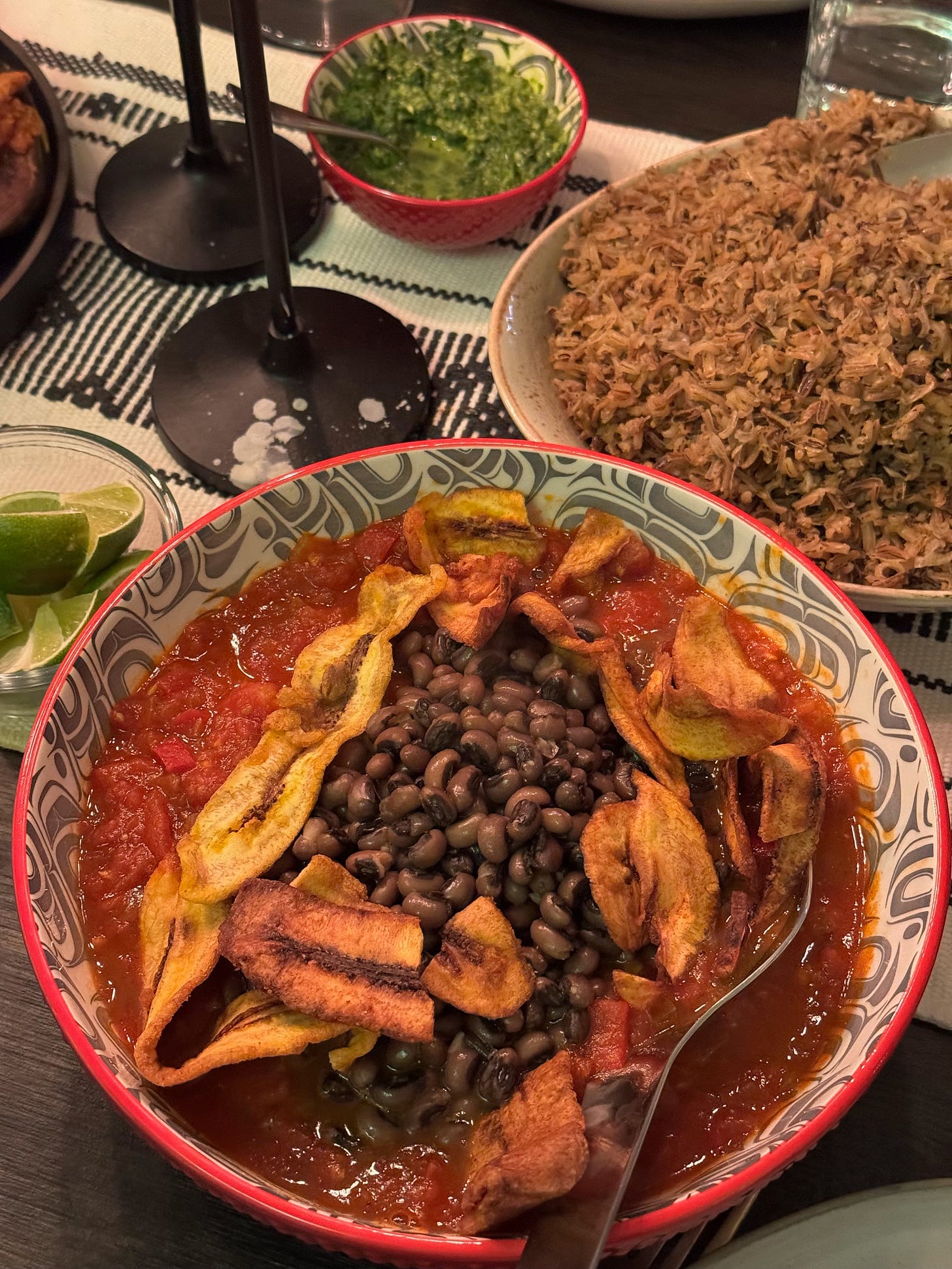Dear readers,
If you have already subscribed, thank you! If you are reading, and considering a subscription, thank you!
I write this to you from Berlin, where Sean is wrapping up almost a week of events corresponding with the German launch of his book The Sioux Chef’s Indigenous Kitchen. There’s been a lot of excitement here surrounding the launch, with hundreds of people coming out to hear Sean speak and drop knowledge about the Indigenous experience in America, and how colonialism has affected his people since the 1600’s. It’s a poignant time to be discussing and thinking about colonialism with the ongoing atrocities unfolding in Gaza.
Like many cities around the world, Free Palestine protests here continue, in spite of bans.
These bans potentially leave freedom of speech in peril, in what is supposed to now be one of the world’s great democracies.
The above linked New York Times Article, “Germany’s Stifling of Pro-Palestinian Voices Pits Historical Guilt Against Free Speech” explains that “Some critics argue that [the bans] are linked to growing hostility toward migrants and the rising popularity of the far-right party Alternative for Germany, now the second most popular party in the polls.
A planned modernization of the naturalization law includes a provision for denying citizenship to people convicted of racism or antisemitism.
Such steps have had a chilling effect on free speech, leaving many worried for their citizenship or jobs, given Germany’s increasingly expansive definition of antisemitism. A well-known German talk show last week said it was unable to get any Arab guests because of these anxieties.
At the same time, critics say, German natives with exposed past Nazi sympathies have faced little accountability.”
Trends like these make it increasingly important to serve reminders of what colonialism and nationalism has done to countless populations around the world. I’m very proud of Sean for being here and continuing his crucial life’s work.
Meanwhile, I’m having fun collecting travel notes for food listicles and all of the joyful of kinds food writing I did in my restaurant critic days (those of you who say you miss it— here’s your chance to subscribe and read!) but at BIPOC Foodways Alliance, our whole goal is to provide a platform for under-told food stories while simultaneously bridging gaps between cultural communities— something it seems like we need now as much as we ever have.
Work that we have been doing, which I’ll document here in the coming weeks:
Our Table with local filmmaker Ryan Stopera and his mother Lichun, where our intentionally diverse group of guests learned their Chinese family recipe dumplings along with their story of loss. After the passing of Ryan’s dad and sister, their family used dumplings as a means of expanding their chosen family and solidifying bonds. Ryan has made a film about the passing of his sister, called Serenity, and as soon as I watched it I knew I wanted him to host a Table. Look forward to their full story here, coming soon, co-written by myself and my colleague Ali Elabbady.
From the start of this project, I knew I wanted to tell more stories about Black women in the kitchen, because these stories are too often under-told. In spite of Black women being the architects of the American kitchen as we know it (fight me) we only own fewer than one percent of all American restaurants. This means what? All together now: our efforts get marginalized or overlooked. After I wrote this story on the subject for Civil Eats, I knew I wanted to do a Table on the subject, to “cook it out,” so to speak. I connected with Teona Washington, who briefly owned a restaurant in Minneapolis, and went through many hardships before the doors closed. I wanted her to “cook it out,” sharing what she could about the experience over her signature gumbo and Mufalletas. When Damenica Ellis, a budding young Black woman journalist approached me about writing advice, I asked her to tell the story. We’ll publish her take on the Table here, coming soon, along with a video of Teona’s Table.
More recently, myself and my niece Sabrina co-hosted a Table on the subject of family separation— Sabrina has been documenting our family Ancestry DNA story for a couple of years, and we thought the best way to serve this story is over West African cooking, the ancestral food we have also been separated from thanks to African displacement and the colonization of our foodways. Black food ain’t all fried chicken and macaroni and cheese, and I’ve been on this journey to find “my” food since I started cooking professionally twenty+ years ago. I’ll also link an upcoming story on this subject that will be publishing in Taste this week.
This is just a glimpse into some of the stuff we have in the hopper for subscribers, and there’s lots more, including my take on a dish I’ve never had before that pretty much blew my mind. For subscribers only!
Until then.






